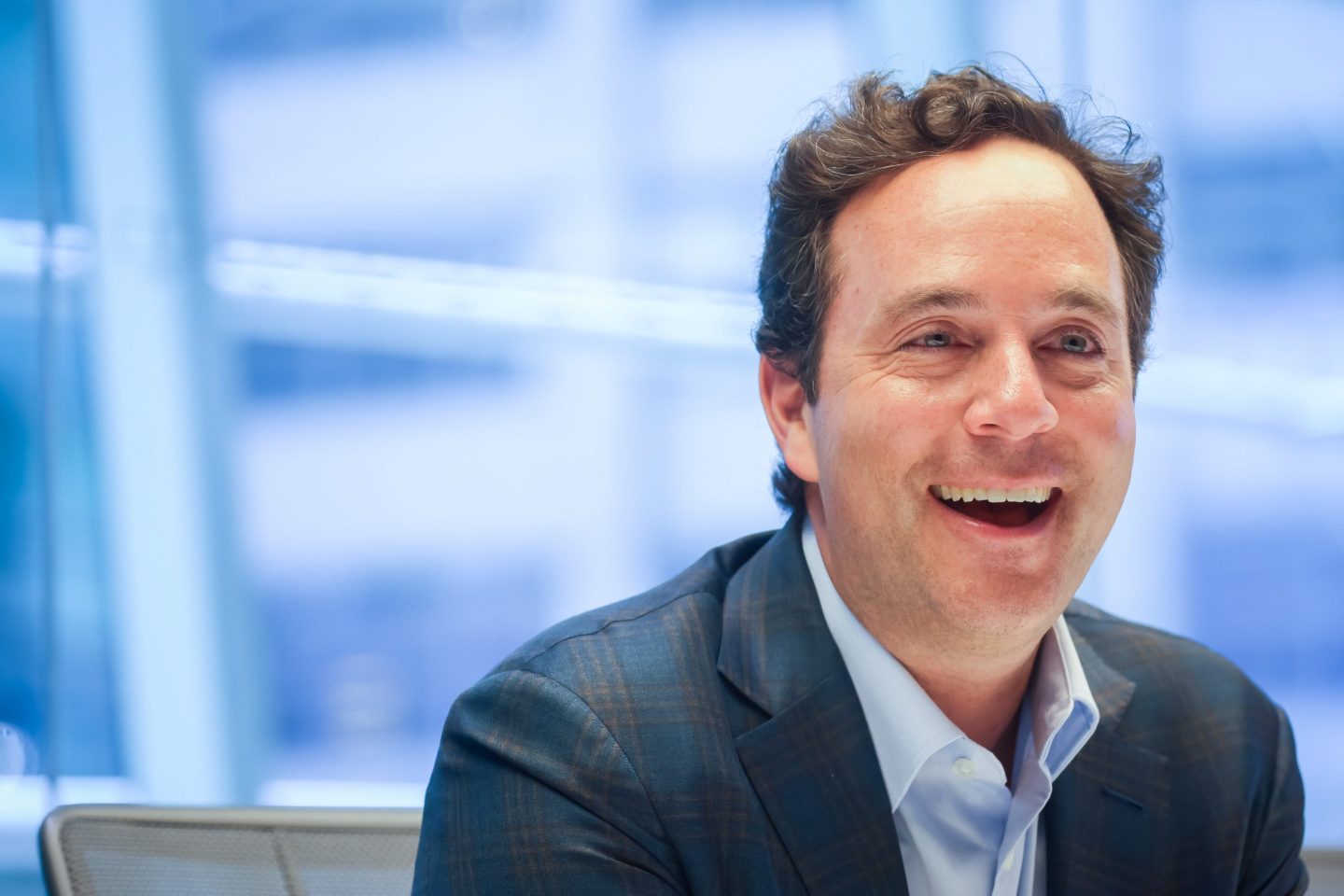Lindsey Michaelides was working at consulting firm McKinsey & Co. when she had her first child.
After returning from maternity leave, she was asked to help the firm develop strategies for retaining high-performing women. The company referred to this as the “female pipeline problem”—the point at which McKinsey employees stopped advancing in their careers.
Michaelides and her colleagues uncovered two key insights that she found personally fascinating. The first was that top performers were leaving not because they didn’t have enough support at work, but rather because they didn’t have enough support at home.
The second insight—and the one that was most interesting to Michaelides—was that this wasn’t just a women’s issue. The same thing was playing out among her male colleagues. “It actually was a dual-career household issue, or a working caregivers issue,” she says. “So that was when I really became completely obsessed with this problem.”
A few years later, Michaelides left McKinsey to become director of strategy and innovation for OhioHealth. She had just recently had her second child when she realized this problem wasn’t going away.
A timely conversation with her then-boss would lead Michaelides on a journey to founding Strongsuit, a startup that provides tech-enabled personal assistants to help busy professionals manage their life outside the office.
What was your “aha moment” for founding Strongsuit?
My boss at the time took me out to lunch and was asking me if I needed the company to beef up my analyst team. He said, “We can give you this whole other team to make sure that you are able to stay on track with all of your projects.”
Meanwhile, I was sitting there thinking, “Wow, the investment someone is willing to make by hiring a whole bunch of extra analysts when, really, all I need is for dinner to be delivered at my house by 6:30 p.m.”
I just needed someone to solve that problem for me—and it’s a totally solvable problem—but I didn’t have time to solve it myself. So I’m staring at this guy, and thinking how he earnestly wants to support me and wants to know what he can do to make sure I have long-term success at this organization, and yet I felt like I couldn’t say, “Can you just make sure that dinner is delivered at my house every night by 6:30 p.m?” It felt like there was this huge gap there.
As I was talking to my friends, my peers, and even my mentors about these seemingly mundane problems, it just kept coming up that these were actually the things that were making people feel burnt-out, and making them make choices in their careers that they, frankly, didn’t feel super good about.
They were making decisions to not go out for that big promotion, or to downshift in their career, or to maybe make a lateral move when they had been offered an advancement opportunity.
These were choices that they were making, not because they felt like it’s what they wanted to do, but what they felt like they had to do because they didn’t have another choice. And so you end up kind of feeling crummy at the end of the day, where you feel like you can’t be successful in either domain—at home or at work. So that was really what led me to start Strongsuit.
What is your biggest challenge?
The work world has changed—not only how we work and where we work, but also the makeup of our families and the responsibilities and expectations that are put on caregivers. All of that has shifted so much, and yet the paradigm of this dividing line between work and our personal lives has not shifted.
So the challenge for us is that we’re trying to play by a set of rules that were invented for a totally different era. Being able to shift that conversation societally is the thorniest problem that I think about on a regular basis.
What is one fun fact about you that people may not know?
The language I have the most study in—other than English—is Tibetan. I studied abroad in Tibet as an undergrad, and I studied the Tibetan diaspora.
The Fortune Founders Forum is a community of entrepreneurs chosen by Fortune’s editorial team to participate at the annual Brainstorm Tech conference, which took place in Deer Valley, Utah, in July. Our inaugural cohort was selected based on a variety of factors, including the potential impact of their companies, and reflected a diversity of geographies, sectors, and demographics.












